Bolton Wanderers v Bristol City, 1969
This Second Division fixture at Burnden Park on 1st November 1969, captured on film by an unknown cameraman, saw a 3-1 win for the home side. Bolton Wanderers, founder members of the Football League and FA Cup winners in 1958, had been a First Division side from 1935 until relegation in 1964. Under club legend Nat Lofthouse, they ended this season in 16th place in the Second Division, before dropping into the Third for the first time in their history at the end of the 1970/71 season.
World Cup-winning striker Roger Hunt joined from Liverpool the month after this game, but neither he nor Lofthouse were able to prevent the club’s decline. Future PFA Chief Executive Gordon Taylor was in the Bolton line-up – having begun his career at Burnden Park, he later moved on to Birmingham, Blackburn and Bury.
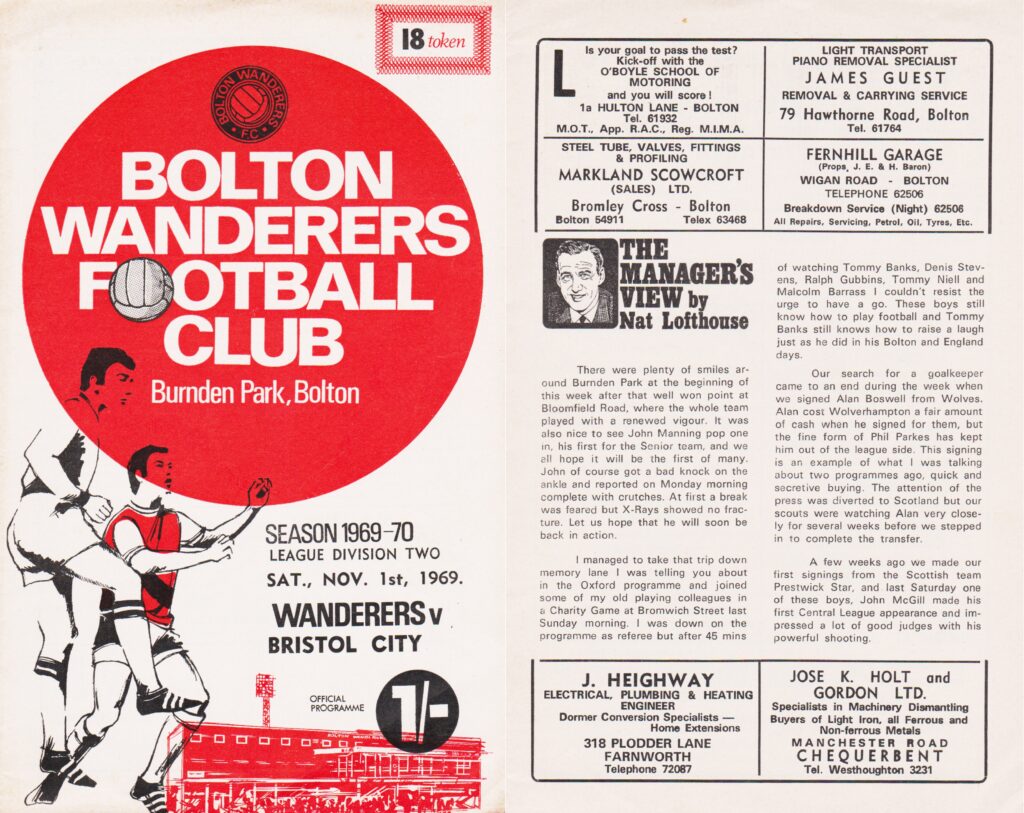
Bolton Wanderers-Bristol City match programme, 1969
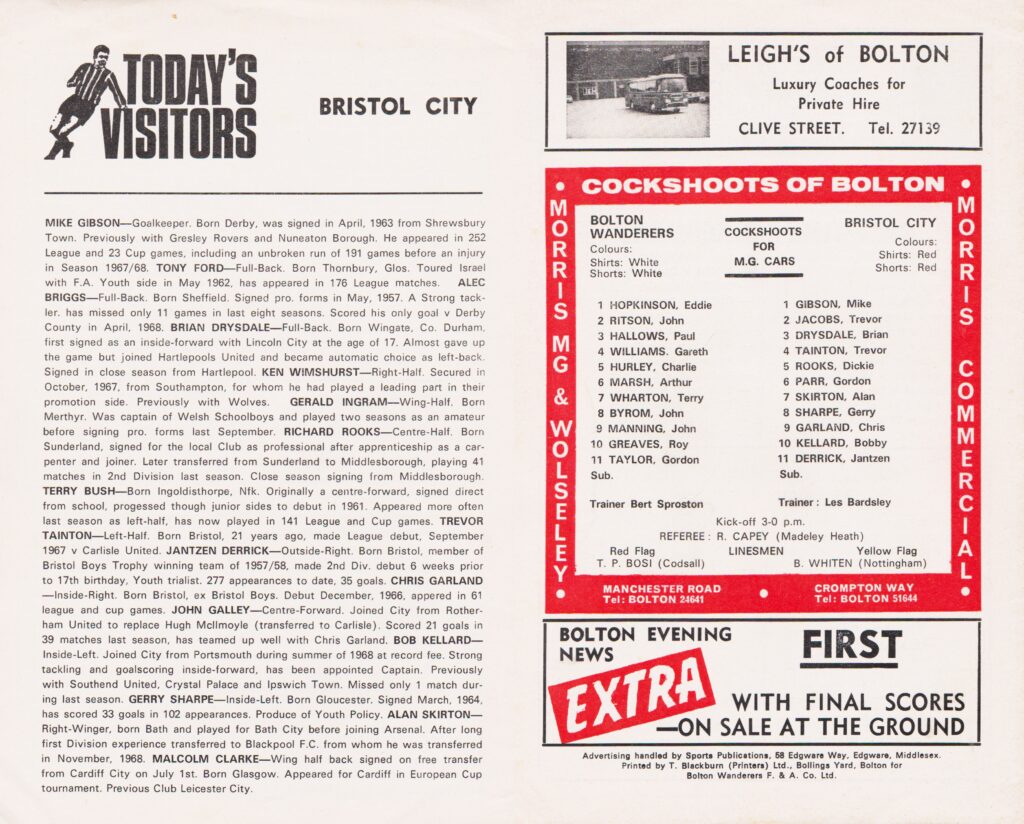
Bristol City finished 1969/70 in 14th place; having been promoted in 1965, they remained in the second tier until 1976, when manager Alan Dicks led their return to the top flight after an absence of 65 years. Long-serving Brian Drysdale, Geoff Merrick and Trevor Tainton were all part of the team that won at Highbury on the opening day of the 1976/77 season. The clubs were re-united in the First Division in 1978/79 after a Bolton revival, but have not met again in the top division since 1980 – both even spent time in the Fourth Division later in that decade.
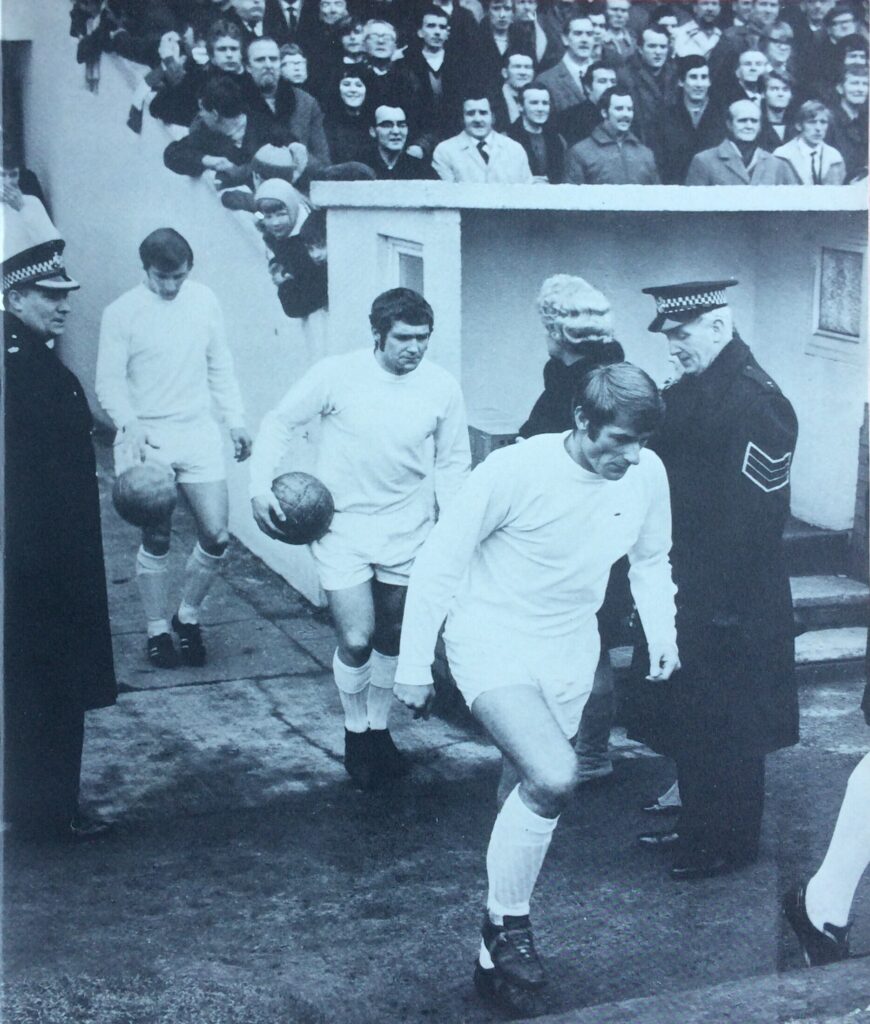
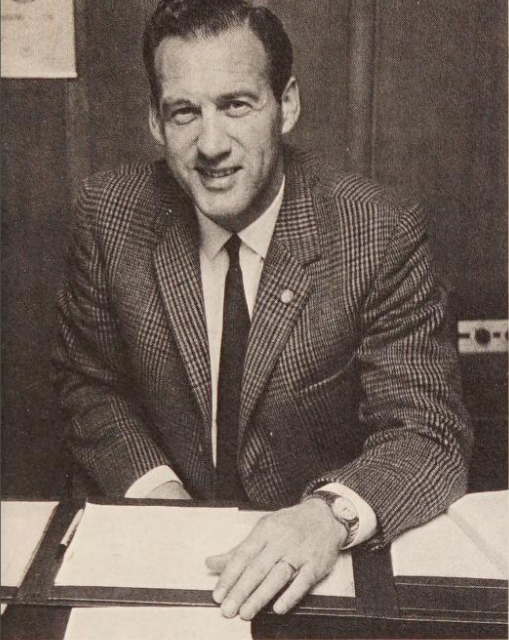
Bolton Wanderers moved to Burnden Park in 1895, from Pikes Lane, site of the Football League’s first goal scored by Bolton’s Kenny Davenport on the 8th September 1888; it was the club’s home for the next 102 years. The stadium’s opening gala on 17th August 1895 was celebrated with the town’s 9th Annual Athletics Festival and, as described by Simon Inglis in his classic Football Grounds of Britain, “attended by an enthusiastic crowd of 20,000, who between the regular events saw a high-diver, a monkey on a bicycle and a performer on stilts.”
Its prestige was confirmed when it was chosen as the venue for the 1901 FA Cup Final replay between Tottenham and Sheffield United. Bolton themselves reached the 1904 FA Cup Final, and won the trophy three times after the First World War – in the famous ‘White Horse’ final of 1923, then again in 1926 and 1929. Nearly 70,000 filled the ground in 1933 for the visit of Manchester City, a club record crowd. Sadly, Burnden Park was the scene of a disaster in March 1946 when 33 people died at a cup tie against Stoke after a fatal crush on the Railway End terrace, after which the stadium was modernised. Club historian Simon Marland has documented the tragedy, together with many milestones over the course of Bolton’s long existence.
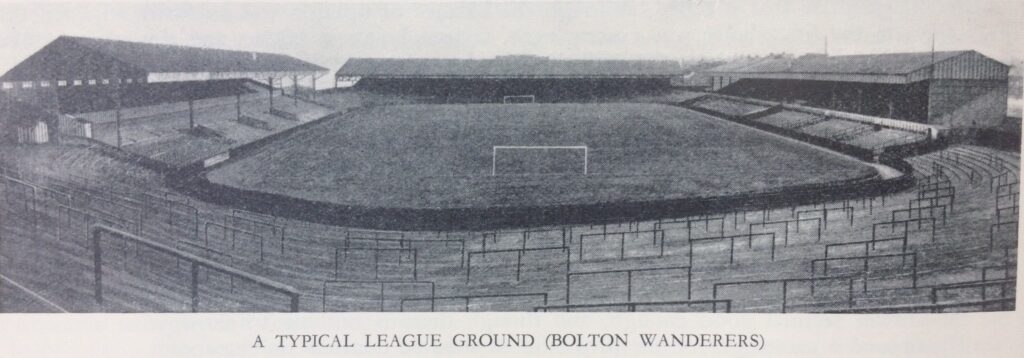
Burnden Park, Bolton (c. 1930s)
As the team reached another Cup Final in 1953, their home was immortalised by artist L.S. Lowry in his painting Going to the Match, bought by the Professional Footballers’ Association in 1999. The ground hosted its last FA Cup semi-final less than six months after this 1969 fixture, the second replay between Leeds and Manchester United; while the team’s fortunes suffered during the 1980s, Burnden Park was still hosting major sporting fixtures, notably Rugby League’s Regal Trophy finals of 1987 and 1989. By 1995, the club was back in the top division, reaching the Premier League under Bruce Rioch; two years later, Bolton left their historic home for the newly-built Reebok Stadium, in an echo of the move from Pikes Lane to Burnden Park a century before.
This snippet represents rare home-movie Super 8 footage before the era of widespread television coverage. Football on TV was still in its infancy – the first national highlights programme, Match of the Day, was only introduced in 1964 by the BBC, and followed by ITV’s The Big Match, launched in 1968. While coverage gradually increased over the next decade, the League resisted the televising of live football until the 1980s.
Match details for Bolton Wanderers – Bristol City; Burnden Park, Football League Division Two, Saturday 1 November 1969:
Bolton Wanderers: 1 Eddie Hopkinson, 2 John Ritson, 3 Paul Hallows, 4 Gareth Williams, 5 Charlie Hurley, 6 Arthur Marsh, 7 Terry Wharton, 8 John Byrom, 9 Roy Greaves, 10 Warwick Rimmer, 11 Gordon Taylor. Manager: Nat Lofthouse. Scorers: Rooks (og), Byrom, Wharton
Bristol City: 1 Bob Wilson, 2 Trevor Jacobs, 3 Brian Drysdale, 4 Ken Wimshurst, 5 Dickie Rooks, 6 Gordon Parr, 7 Alan Skirton, 8 Gerry Sharpe, 9 Chris Garland, 10 Trevor Tainton, 11 Bobby Kellard (sub Geoff Merrick). Manager: Alan Dicks. Scorer: Sharpe
Attendance: 6,757
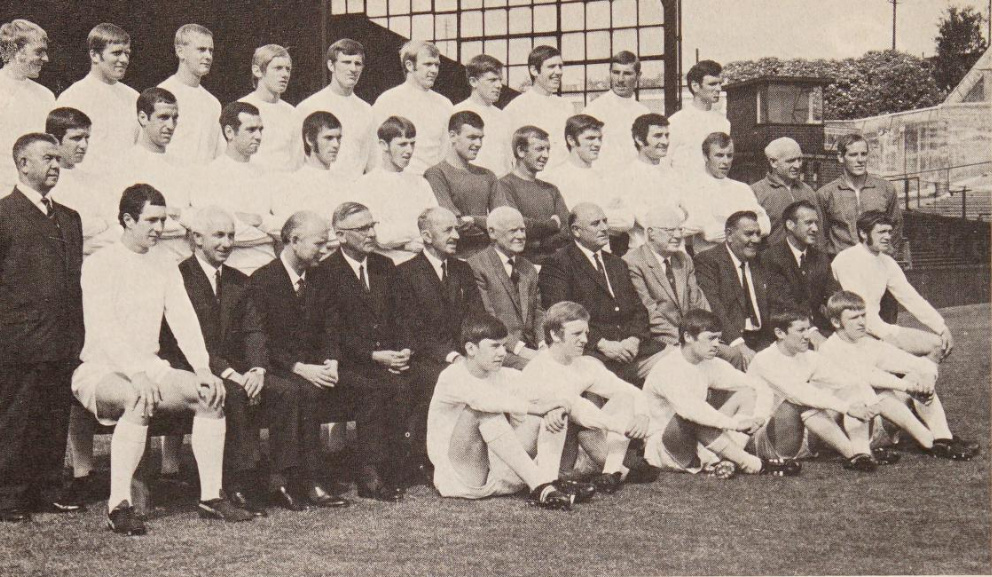
Bolton Wanderers 1969/70
Match programme scans courtesy of Miles McClagan (@TheSkyStrikers twitter and Flickr).
The fluctuating fortunes of Football League clubs over the years is one of the topics discussed in my book Before the Premier League: A History of the Football League’s Last Decades.